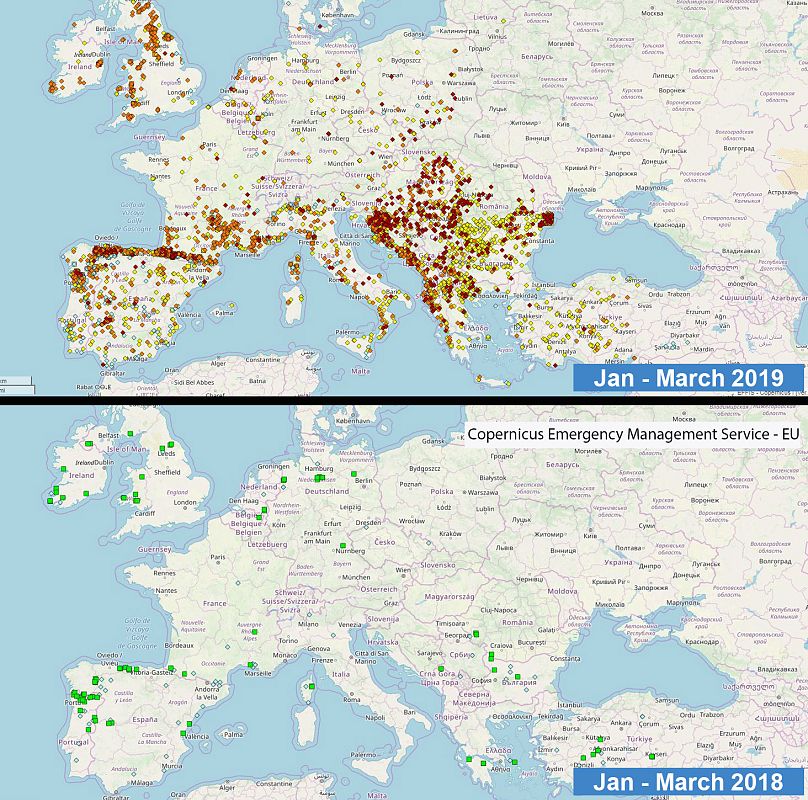The number of fires equals is close to the average... in August.
It's not really unexpected, but it's still alarming. Along with high pollution levels, the record hot temperatures many of us experienced this February led to an exceptional number of wildfires in western Europe.
 ADVERTISEMENT
ADVERTISEMENT
 ADVERTISEMENT
ADVERTISEMENT
According to the Emergency Management Service of the EU agency Copernicus as of today, March 1, there have been 480 wildfires in 2019 across Europe.
Compared to the 2008-2018 average number of fires, this corresponds to the number of fires usually recorded mid-August.
The area of surface burnt is slightly lower, with 74,482 hectares, the typical situation in mid-July. In March, the 2008-2018 average is of 4,872 hectares burnt for all Europa.
France is the worst-hit country with 180 fires, mainly in Corsica, strikingly above the overall average number of fires (24 at its highest), and also well above the typical burnt area.
Spain has also exceeded its typical yearly maximum number of wildfires but the surface burnt remains slightly less worrying. Neighbour Portugal stays among the average for the season.
The United Kingdom reached its usual yearly maximum with 15 wildfires, and Ireland, with an average of 9 wildfires a year, has already recorded 5.
In Eastern Europe, Croatia counts for 22 wildfires (with an average of 24 usually, by the end of the year and Romania has seen 38 fires and about 20000 hectares burnt which is far more than the yearly average. But on the other hand, Bulgaria hasn't recorded any wildfire yet and it usually has around 17 by this time of the year.
For the record, Belgium whose average of wildfires is usually zero has already experienced two.
The Copernicus EMS data records the number of fires of 30 hectares or larger.
Hungary is another European Country beating temperature records but luckily hasn't registered any wildfire.
Researcher David Moore spotted these figures earlier on the week.
The phenomenon is clearly visible on the Copernicus EMS Rapid Damage Assesment Map, comparing the number of alerts between January and March in 2018 and this year.











